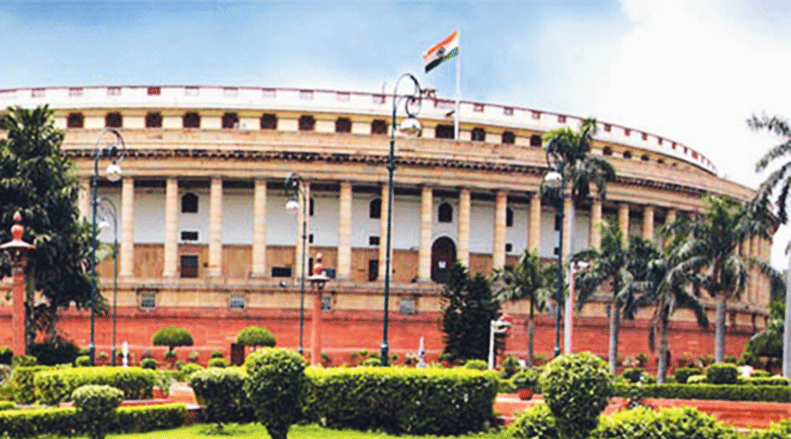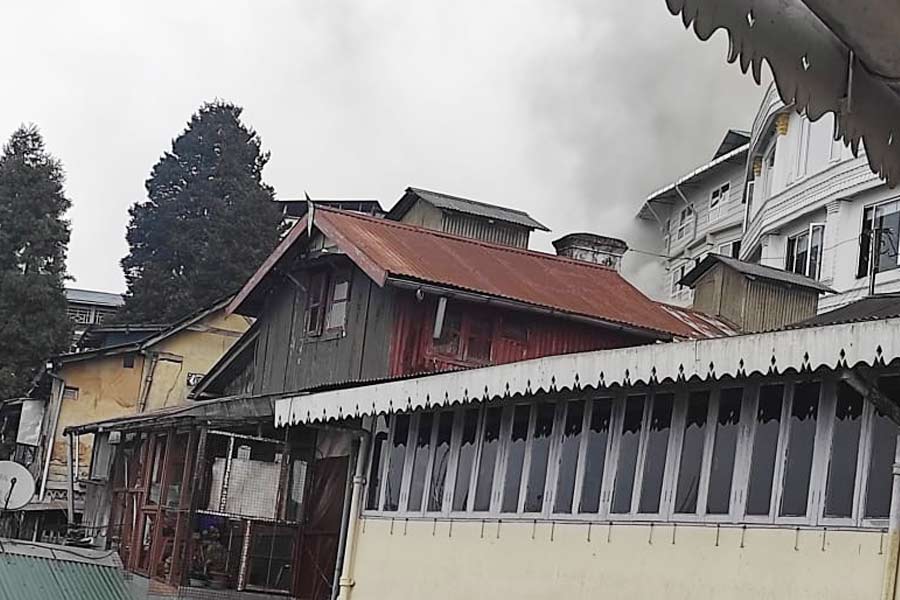BJP MPs will introduce private members' bills on population control and uniform civil code in the upcoming Monsoon session of Parliament, according to information from the secretariats of both Houses.
The private members' bill on population control comes close on the heels of the law commission of BJP-ruled Uttar Pradesh, the most populous state in the country, putting up a draft bill on the issue on its website, inviting suggestions from the public till July 19.
BJP Lok Sabha MP from Uttar Pradesh Ravi Kishan and Rajya Sabha MP from Rajasthan Kirori Lal Meena are scheduled to introduce the private members' bills on population control and uniform civil code respectively in the very first week of the Parliament session which is starting from July 19.
A bill introduced by a member other than a minister is known as a private member's bill and there is little possibility of it becoming a law without the government's support.
The proposed legislations on population control and uniform civil code, issues that usually trigger heated polemics in the country, are in line with the BJP's ideological agenda.
Opposition parties have criticised the BJP's moves in this regard, claiming that they are aimed at targeting one specific community, while the BJP has accused them of pursuing appeasement politics.
According to the details available with Lok Sabha and Rajya Sabha secretariats, Kishan and Meena will get an opportunity to introduce their respective private members' bills on July 24, which was decided through the lottery system.
A notice for a similar bill on population control has also been given by BJP MP in Rajya Sabha Rakesh Sinha.
The proposed legislations on population control emphasise on deincentivising couples having more than two children, by making them ineligible for government jobs and subsidies on various facilities and goods given by the government.
The draft UP population control bill says people having more than two children will be debarred from contesting local bodies polls, applying for government jobs or receiving any kind of subsidy.
Similar legislation is under discussion in another BJP-ruled state Assam.
Meanwhile, Vishva Hindu Parishad, a member of the ruling BJP's ideological family, has objected to the one-child policy norm of the draft population control bill in UP, saying it is likely to further increase the imbalance between different communities and contract the population as well.
"The preamble of the bill states that this is a bill, inter alia, to stabilise the population and promote the two-child norm. The Vishva Hindu Parishad agrees with both objects," the organisation's working president, Alok Kumar, said in a letter to the Uttar Pradesh State Law Commission (UPSCL) on Monday.
However, Sections 5, 6(2) and 7 of the bill, which incentivise public servants and others to have only one child in the family, go "well beyond the said objects", he said.
Asked about the bill he intends to introduce, Sinha said population growth has been ringing an "alarm bell" for the country and asserted that a central law is "most required" as it will be applicable across the nation.
The unchecked population growth needs to be regulated, he said.
Noting that Prime Minister Narendra Modi had made a critical intervention in the debate over the issue during his speech on August 15, Sinha said that Modi had called for a balance between resources and population.
The discourse over the issue should not be seen through caste and religious angles, Sinha said.
According to PRS Legislative, no private members' bills have been passed by Parliament since 1970. A total of 14 such bills have received Parliament's nod.











